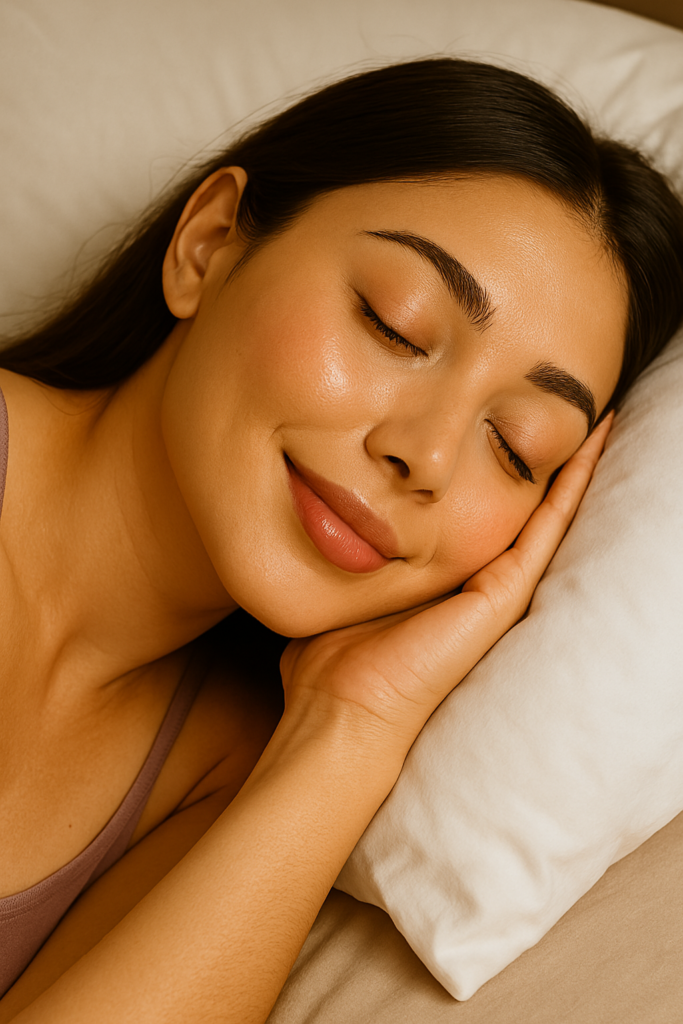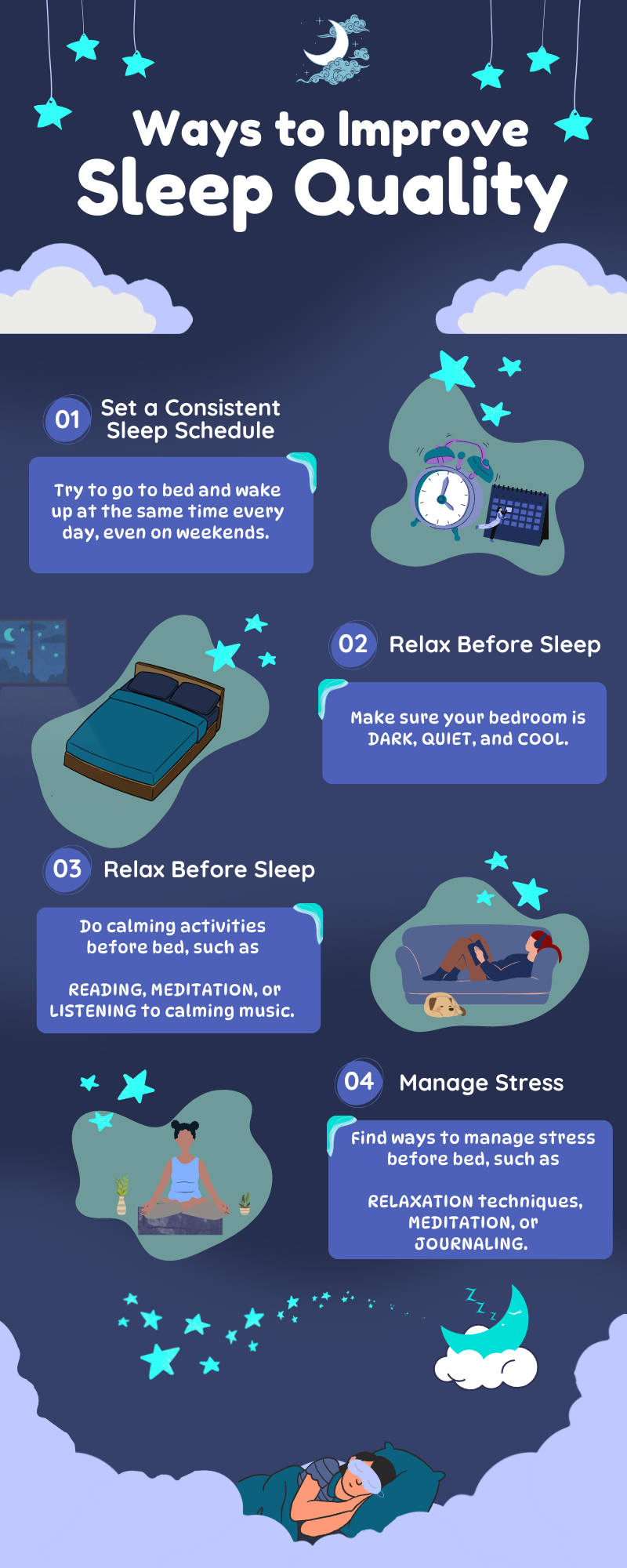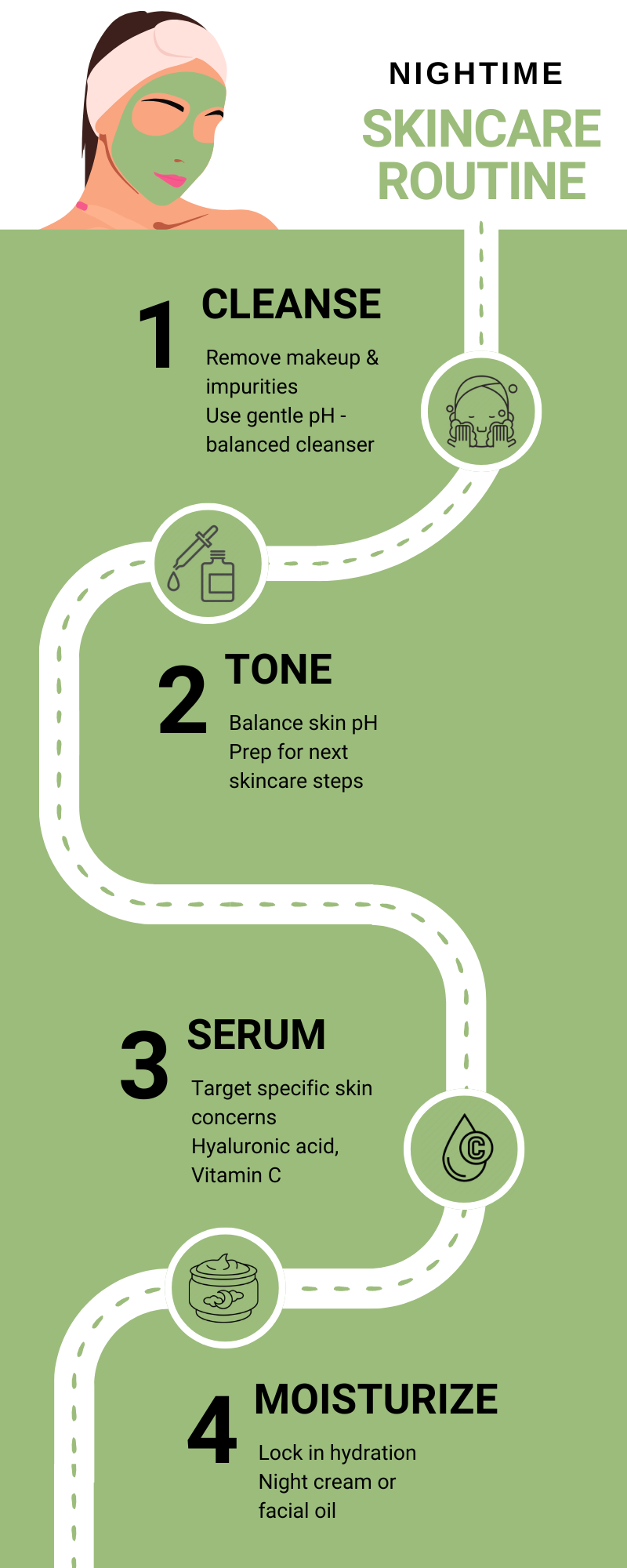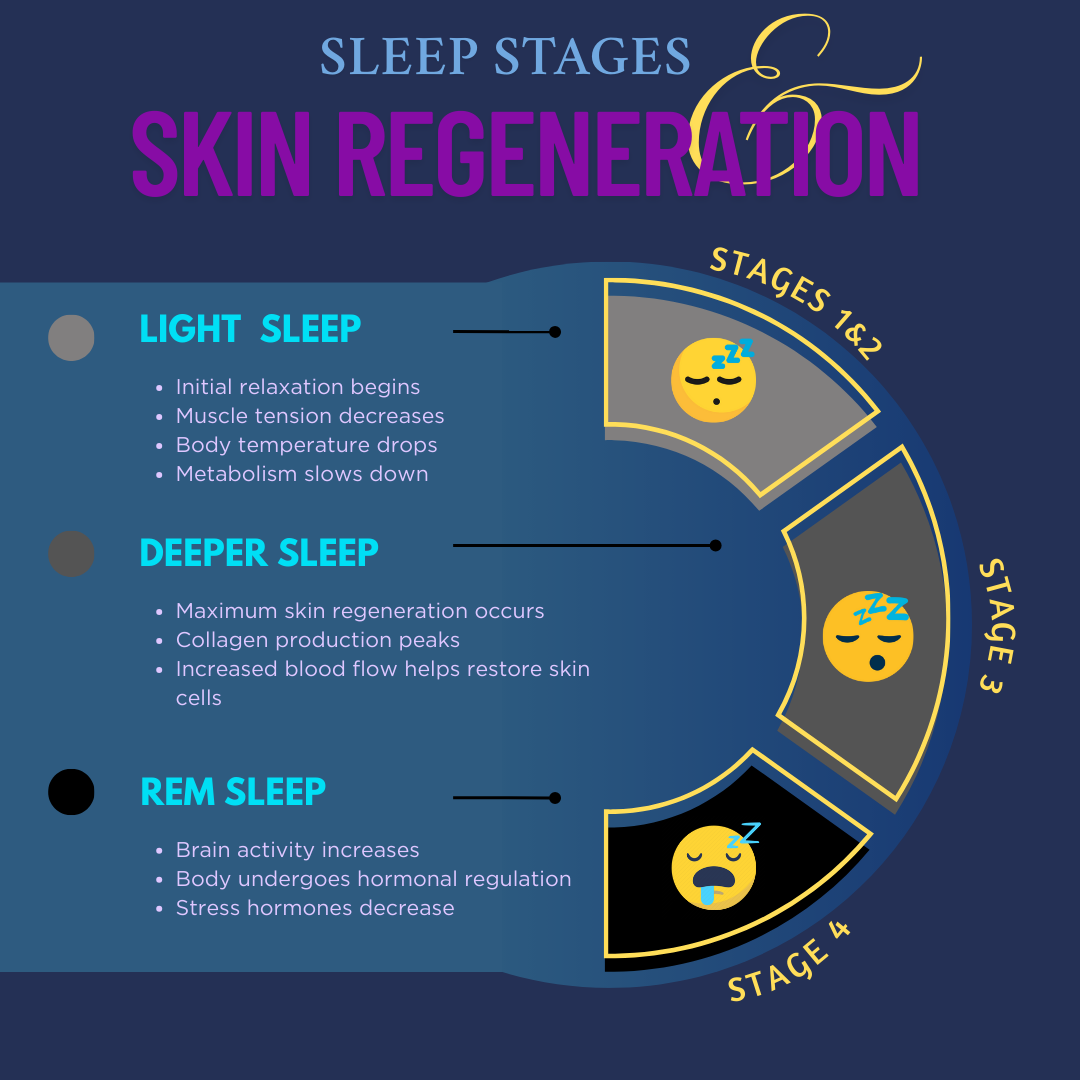The Ultimate Skincare Hack You Need to Try!

We’ve all heard the phrase “beauty sleep”, but did you know it’s more than just a cute saying? Sleep is the ultimate skincare hack, and if you’ve been splurging on fancy serums but skimping on shut-eye, you might be missing out on the real magic.
Let’s dive into why sleep is essential for healthy skin and how you can make the most of it!
How Sleep Helps Your Skin Glow
Your skin is literally repairing itself while you snooze. Here’s what happens:
1. Boosts Collagen Production
Collagen is the holy grail of anti-aging. When you sleep, your body produces more collagen, keeping your skin firm and wrinkle-free. Less sleep = less collagen = more fine lines. Yikes!
Collagen is responsible for skin elasticity and firmness. As we age, our collagen production naturally decreases, but getting enough sleep can slow this process down. The more quality sleep you get, the more time your body has to generate fresh collagen, making your skin look plumper and smoother. If you’re not getting enough sleep, your skin loses its firmness faster, leading to early signs of aging.
2. Reduces Dark Circles and Puffiness
Lack of sleep can cause poor blood circulation, leading to those annoying dark circles and puffiness under your eyes. Want to avoid looking like a panda? Get those 7-9 hours!
The area under your eyes is extremely delicate, and when your body is tired, it retains fluid, making your eyes appear swollen and puffy. A good night’s rest, along with a cooling eye mask or a gentle under-eye massage, can help reduce swelling and brighten your under-eye area.
3. Repairs Damage from Pollution & UV Rays
Throughout the day, your skin fights off pollution, sun damage, and stress. Sleep is when the repair process happens, thanks to increased blood flow and cell turnover.
Environmental stressors such as UV rays, dust, and pollution cause oxidative stress, which speeds up the aging process. Sleep helps reverse some of this damage by increasing oxygen flow to your skin and promoting faster cell regeneration. Your skin produces antioxidants while you sleep, which fight free radicals and repair damaged skin cells.
4. Prevents Breakouts
A sleepless night = higher cortisol levels = more oil production = acne. Need we say more?
When you’re stressed or sleep-deprived, your cortisol levels rise, causing an increase in oil production. This excess oil clogs your pores, leading to acne breakouts. A proper sleep schedule helps balance your hormones, reducing stress and keeping breakouts at bay.
Sleep Stages and Skin Regeneration
Your skin undergoes different repair processes depending on your sleep stage:
1. Light Sleep (Stage 1 & 2)
- Initial relaxation begins
- Muscle tension decreases
- Body temperature drops
- Metabolism slows down
Light sleep is essential for transitioning into deeper stages of sleep. During this phase, your body begins to unwind, and blood flow to your skin increases slightly. While this is not the peak repair phase, it sets the stage for deeper regeneration.
2. Deep Sleep (Stage 3)
- Maximum skin regeneration occurs
- Collagen production peaks
- Increased blood flow helps restore skin cells
Deep sleep is where the magic happens. This is when the body releases growth hormones that trigger collagen production, aiding in the repair of damaged skin. The increased blood flow during deep sleep delivers oxygen and nutrients to skin cells, promoting cell turnover and reducing signs of aging.
3. REM Sleep (Stage 4)
- Brain activity increases
- Body undergoes hormonal regulation
- Stress hormones decrease
While deep sleep focuses on physical repair, REM (Rapid Eye Movement) sleep plays a crucial role in reducing stress levels. Lower cortisol levels mean less inflammation, which is key to preventing breakouts and dull skin. REM sleep also helps regulate hydration levels, keeping your skin balanced and less prone to dryness or excessive oiliness.
The deeper your sleep, the more effective your skin’s repair process is. That’s why achieving quality sleep is crucial for youthful, healthy skin!
Sleep Techniques for Better Skin
So, how can you maximize your sleep for glowing skin? Here are some dermatologist-approved tips:
1. Follow a Nighttime Skincare Routine
Before bed, cleanse your skin, apply a hydrating serum (like hyaluronic acid), and lock it in with a night cream. Bonus: use an anti-aging cream with retinol to boost collagen overnight!
A good nighttime skincare routine is crucial for maximizing your skin’s repair process while you sleep. Choose products that are rich in antioxidants, peptides, and hydrating ingredients to support your skin’s overnight recovery.
2. Sleep on a Silk Pillowcase
Cotton pillowcases can cause friction, leading to wrinkles and hair breakage. A silk pillowcase? Total game-changer for smooth skin and frizz-free hair!
Silk is gentle on your skin and reduces the amount of tugging and pulling that can contribute to premature wrinkles. It also helps your skincare products stay on your skin rather than getting absorbed by your pillowcase.
3. Sleep on Your Back
Side sleeping may be comfy, but it can cause sleep wrinkles over time. Try sleeping on your back to avoid pressing your face into the pillow.
When you sleep on your stomach or side, your face is constantly in contact with your pillow, which can lead to fine lines and even acne. If you struggle to sleep on your back, try using a supportive pillow or a sleep training technique to adjust your sleeping position.
4. Keep Your Room Cool & Dark
A cooler room (around 65°F or 18°C) promotes deeper sleep, which is essential for cell regeneration. Plus, total darkness helps your body produce more melatonin, a powerful antioxidant.
Melatonin is a sleep hormone that not only helps you fall asleep faster but also protects your skin from oxidative stress. To improve your sleep environment, invest in blackout curtains and set your thermostat to a comfortable, cool temperature.
5. Stay Hydrated (But Not Too Much!)
Drink enough water throughout the day, but avoid chugging water right before bed to prevent puffy eyes in the morning.
Proper hydration keeps your skin plump and dewy. However, drinking too much water right before bed can lead to disrupted sleep due to frequent bathroom trips, which may leave you feeling tired and dehydrated.
6. Manage Stress Before Bed
Stress raises cortisol, which can lead to breakouts and premature aging. Try meditation, deep breathing, or journaling before sleep to calm your mind.
Practicing mindfulness techniques before bed can lower cortisol levels and improve sleep quality. Listening to calming music, reading a book, or doing a relaxing skincare routine can also help you unwind.
7. Stick to a Consistent Sleep Schedule
Your skin loves routine! Going to bed and waking up at the same time every day helps regulate your body’s repair cycle.
Having an irregular sleep schedule confuses your body’s natural circadian rhythm, making it harder for your skin to regenerate properly. A consistent bedtime routine will help maintain a steady cell turnover process, keeping your skin healthy and youthful.

Best Foods for Better Sleep & Skin
What you eat also plays a big role in how well you sleep and how your skin looks. Here are some skin-friendly sleep boosters:
- Cherries – Natural melatonin and antioxidants, which help regulate sleep and fight skin aging.
- Almonds – Rich in magnesium, promoting muscle relaxation and skin hydration.
- Fatty Fish – Packed with Omega-3s, reducing inflammation and keeping skin plump.
Bonus Sleep-Skin Foods:
- Kiwi – High in vitamin C and antioxidants for bright, even-toned skin.
- Chamomile Tea – Calms the mind and reduces skin irritation.
- Walnuts – Contain biotin and Omega-3s for glowing, healthy skin.
- Tart Grape Juice – A natural melatonin booster with skin-protecting antioxidants.

Foods that are good for Sleep and Skin
FAQs About Sleep & Skincare- Can sleeping too much affect my skin?
Yes! Oversleeping can cause puffiness and may disrupt your circadian rhythm, affecting skin health. Aim for 7-9 hours max.
- Is beauty sleep real or a myth?
It’s 100% real! Your skin regenerates and repairs itself while you sleep, making it essential for maintaining a youthful glow.
- What’s the best time to sleep for good skin?
Try to sleep between 10 PM and 2 AM—this is when your body does the most repair work.
- Can I reverse sleep deprivation effects on my skin?
Yes! While long-term damage takes time to heal, maintaining a good sleep schedule, staying hydrated, and using nourishing skincare products can help restore your skin’s health.
Final Thoughts
Good skin doesn’t just come from skincare products; it starts with a good night’s sleep. So, put down your phone, set the mood for sleep, and let your skin do its thing overnight.
And if you’re looking for more health and skincare tips, check out our other articles on Eat Your Way to Glowing Skin: A Food Guide for Your Face and Dark Circles: A thing of the past.
Sweet dreams & glowing skin ahead!
Have any personal sleep hacks that keep your skin looking fabulous? Drop them in the comments below!



